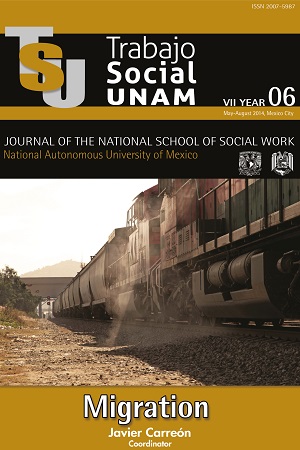Institutional violence against central american trans-migrants
Contenido principal del artículo
Resumen
The situation of vulnerability in which Central American Trans-Migrants find themselves in their passage through Mexico is extreme, as a result of Mexico not only being a country of destination, but also a country of passage on the way to their final destination: the United States. On their journey through Mexico Central American trans-migrants confront various kinds of violence by other migrants, local and state authorities, immigration agents and even the institutions in charge of procuring respect for human rights. This article centers its attention of the institutions for attention to migrants. Our goal is to carry out an analysis of the pertinence and usefulness that four of these institutions have had, specifically the National Institute of Immigration, the Prosecutor Specialized in Crimes against migrants in the State of Chiapas, the Oaxacan Institute for Attention to Migrants and the General Institute for Attention to Migrants in the State of Veracruz. Following the lead wire of this article, first a brief outline of the Judicial Power in Mexico is made, then some characteristics of Central American trans-migrants are presented, followed by descriptions of the main migratory routes, a brief summary of the policies and programs of the Mexican government directed at trans-migrants and finally a documentary analysis of the National Institute of Immigration and the Prosecutor Specialized in Crimes against migrants in the states of Chiapas, Oaxaca and Veracruz.
Detalles del artículo
Cómo citar
Mejía Rubio, S., & García Lirios, C. (2016). Institutional violence against central american trans-migrants. Trabajo Social UNAM, (6), 45–66. https://doi.org/10.22201/ents.20075987p.2014.6.54566
